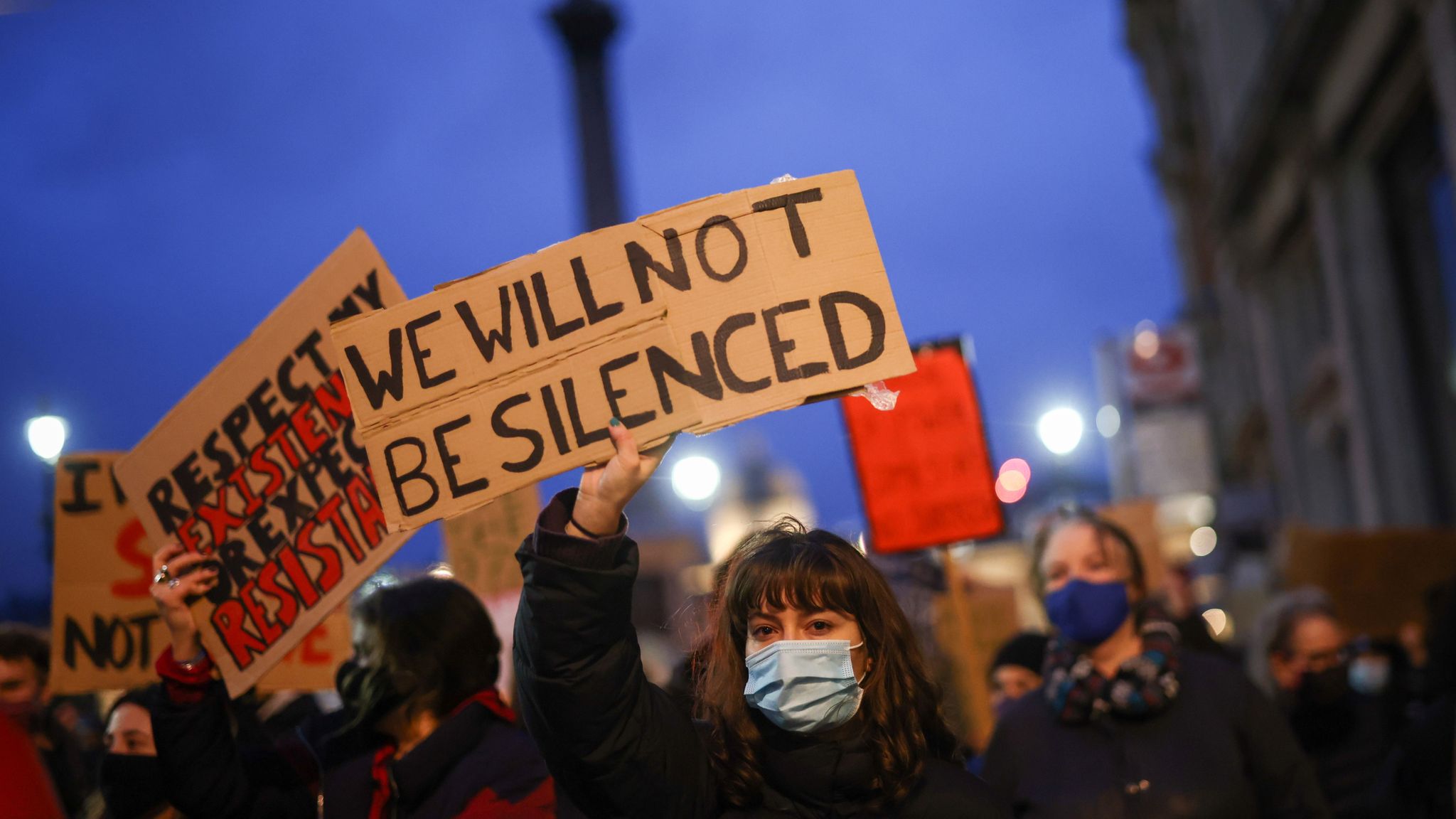“The right to peaceful protest is a fundamental tool of civic expression, and will never be curtailed by this government” said Kit Malthouse, Minister for
Policing, in a speech before the House of Commons on 7 September 2020. However, the latest developments call this promise into question.
On 16 March, the Police Crime, Sentencing and Courts Bill passed the second reading in the House of Commons. It sparked demonstrations in cities across the country, most notably in Bristol, where initially peaceful
protests descended into riot-like clashes with police officers. To understand the exact consequences of the new Bill, we need to take a closer look
at what legal changes the new legislation brings about.
From the 307 pages of the Police Bill, it is the ten-page section about “Public Order” that has raised the most concerns. The key criticism focuses on the putatively unlawful expansion of executive state power at the expense of citizens. Before addressing if this accusation is actually accurate, we have to ask ourselves: What does “unlawful” mean? Which “law” is it that the Bill supposedly violates? Unlike the legal systems of countries like Germany and the U.S., the UK has no written constitution including civil rights that the legislator may not violate. In a system in which the government controls the parliament by a majority, who protects us from the government?
In 1998, under a Labour administration, the UK joined the European Convention of Human Rights. Vaguely, this international treaty aimed to equip the citizens of every member state with fundamental rights, functioning as a stand-in constitution in the UK in this area. Articles 10 and 11 guarantee freedom of speech and peaceful assembly. Member states –
such as the UK – must not conduct anything that violates this “right to protest.” However, as Section 2 of Article 11 states, even the exercise of peaceful protest may be restricted in certain situations. This makes sense, because otherwise there would be no justification whatsoever to limit peaceful protests – not even health risks due to a pandemic. To be lawful, therefore, the Police Bill must prove to be “necessary in a democratic society in the interests of national security or public safety, for the prevention of disorder or crime, for the protection of health or morals or for the protection of the rights and freedoms of others.”
The European Court of Human Rights has added that any restriction requires a “pressing social need.” This is where the trouble begins. Despite all controversies, the Home Office insists that the legislation respects human rights. Against the backdrop of the Black Lives Matter and especially the Extinction Rebellion activism during the last years, the police have emphatically complained that their competencies to intervene were not sufficient to deal with activists who adopt new tactics, especially occupying public spaces. According to them, their hands are tied when it comes to
ensuring the functioning of public life.
This claim seems to be supported by the fact that the Metropolitan Police lost a High court challenge to its conditions imposed on the October
2019 London protest of Extinction Rebellion. The court found that the current law in force, the Public Order Act 1986, did not allow the police to take these measures. Under these circumstances, a new regulation could indeed be “necessary in a democratic society in the interests (…) of public safety.” Thus, no human rights violation?
There are two main issues with the Bill. Firstly, preceding the legislation, there has been very little reasoning. Usually, before a bill is debated, the government introduces a Green Paper or a White Paper into the House of Commons, which provides the policy with an explanation and rationales. Regarding the new Bill, there was no such paper. It therefore remains in the
dark which “pressing social need” it aims to tackle. Turning to what the public order provisions actually propose, as law professor David Mead
observes, the problem lies not so much in the expansion of police powers to impose conditions itself. It is more the extreme indeterminacy and broadness of the new ways police can intervene, which far exceed the flexibility officers need in order to deal with different situations.
Under Clause 54, for example, an officer may impose restrictions on a public procession if its “noise” may have a “significant and relevant impact” on people in the vicinity, or cause them to suffer “unease, alarm or distress”. Isn’t the very object of political activism to make “noise”, have a “significant and relevant impact” and cause “unease”? If the possibility to peacefully protest is effectively limited to silent vigils, how much of our democratic right to dissent are we left with?
Additionally, precisely for the Bill’s broadness, it is liable to misuse. Due to the challenges the police face trying to control demonstrations, officers are likely to interpret their powers in the widest possible way and thereby violate human rights. The fact that such unlawful conditions can later be challenged in court doesn’t help the marchers in the heat of the
moment.
So finally, was the riot in Bristol right? No. Bristol mayor Marvin Rees is right in condemning the violence as “unacceptable” and a symptom of “political illiteracy.” The underlying political claim, however, which was ultimately overshadowed by pictures of burning police cars, is far from unjustified. The Bill is in urgent need of revision. The Labour party, who initially planned to abstain from the vote, has changed its stance following the events at the Sarah Everard vigil. However, their majority in the House of Commons leaves it on the Conservatives to support amendments in the third reading, which is expected in June.
Featured image via Sky News.

